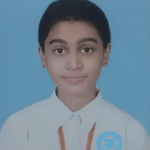Social platforms platforms provide an environment for people to express their opinion, thoughts, information, and views on different topics, personalities, and things. But sometimes these online interactions become abusive and harmful.
A USA-based researchER Vaibhav Rupapara and a Pakistani researcher Furqan Rustam conducted a research study to monitor online platforms using artificial intelligence to stop online abuse and toxic conversations.
The research is published in an international journal IEEE Access with the title “Impact of SMOTE on Imbalanced Text Features for Toxic Comments Classification using RVVC Model”.
This study introduces an ensemble approach, called regression vector voting classifier (RVVC), to identify the toxic comments on social media platforms. The ensemble merges the logistic regression and support vector classifier under soft voting criteria.
Several experiments are performed on the imbalanced and balanced dataset to analyze the performance of the proposed approach. For data balance, the synthetic minority oversampling technique (SMOTE) is used on the imbalanced dataset. Furthermore, two feature extraction approaches are utilized to investigate their suitability such as term frequency-inverse document frequency (TF-IDF) and bag-of-words (BoW).
Vaibhav Rupapara and Furqan Rustam think that their system is too strong and they can provide their approach to online social media platforms voluntarily to stop abuse and toxic conversation.
This research was able to detect the abusing and toxic content automatically with high efficiency and accuracy of 97% accuracy.
In this research, other team members were Ms. Hina Fatima Shahzad, Dr. Imran Ashraf (South Korea), Dr. Arif Mehmood (Pakistan), and Prof. Dr. Gyu Sang Choi (South Korea).
This work was supported in part by the Basic Science Research Program through the National Research Foundation of Korea (NRF) funded by the Ministry of Education under Grant NRF-2019R1A2C1006159, and in part by the Ministry of Science and ICT (MSIT), South Korea, through the Information Technology Research Center (ITRC) support program supervised by the Institute for Information and communications Technology Promotion (IITP) under Grant IITP-2021-2016-0-00313.
![]()

Bashir Ahmad is a medical student working as a freelance writer, graphic designer and social media manager for Pakscience, Scientia Pakistan and many other platforms. Tap on the social media links below to connect with him.




